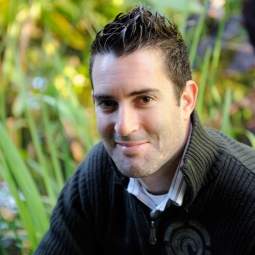CSIR offering: Evidence-based solutions to plastic pollution in Africa
Welcome to #SolvePlasticsAfrica, the CSIR’s Science, Technology and Innovation Hub aimed at providing evidence-based solutions to addressing plastic pollution in Africa, through various modelling capabilities.

The CSIR’s #SolvePlasticsAfrica Hub offers the following support:
- Modelling solutions and intervention strategies to address plastic pollution
- Pathways Tool 1 – Supporting policy and decision making by modelling the effectiveness of various solutions for reducing plastic leakage to the environment.
- Cost-benefit analysis – translating the benefits of reducing plastic pollution to monetary values, to understand the cost-effectiveness of alternative solutions and assist in decision making.
- SASCOST model – supporting decision making by comparing the costs and benefits of different options for implementing waste separation at source recycling programmes.
- Scenario analysis – assessing alternative scenarios and projecting the future implications of policy and decisions regarding plastics pollution.
- Modelling the impacts of plastic pollution
- Life cycle assessment (LCA) – assessing the environmental impacts of plastic products (and of alternative materials) across the full product life cycle, to enable more informed choices.
- Life cycle sustainability assessment (LCSA) – broadening the scope of LCA to include social and economic aspects; enabling a broader, more holistic sustainability assessment of products.
- Material flow analysis and ‘hot-spot’ analysis – Assessing sources, pathways, stocks and flows of plastic through the economy, in order to identify key problem areas and priority interventions.
- End-of-life modelling and material pollution indicators – improved country-specific modelling of the local waste management system, and indicators to account for material (including plastic) pollution.
- Economic valuation – quantifying the impacts on ecosystem services, and translating the impacts to monetary values, to better understand the costs to society and the benefits of taking action.

Plastic pollution, including the leakage of plastic items to the environment, is a global challenge and a growing concern for Africa. At the same time, however, plastics play an important role in society. Uninformed decisions can have significant unintended consequences, particularly in the African context, where financial resources are limited, and where people face broader socio-economic challenges.
Therefore, solutions to addressing plastic pollution in Africa must be based on sound scientific evidence. The CSIR’s modelling capabilities are being applied to better understand:
- The impacts of plastic pollution;
- Alternative materials, e.g. plastic and non-plastic substitutes – do they provide greater environmental benefits? What are the potential unintended consequences?; and
- Solutions that can be implemented to address the problem in the most cost-effective way.

To address the growing plastic pollution problem in Africa, the CSIR aims to:
- Apply its capabilities in modelling plastic flows and impacts in a number of African countries;
- Provide support and build capabilities in African countries in modelling plastic flows and impacts;
- Help build country-specific waste management models to improve the regional understanding of plastic pollution to water, land and air;
- Improve estimates of plastic flows to oceans, to enhance a global understanding of marine plastic pollution;
- Provide evidence-based support in identifying solutions that will be most effective (and cost-effective) in reducing plastic leakage; and
- Support government, industry and civil society with science-based evidence to inform policy and decision-making to address plastic pollution.
For more information, contact Anton Nahman (Research Group Leader: Sustainability, Economics and Waste) at anahman@csir.co.za.
1 The Pathways tool, which evolved from The Pew Charitable Trusts’ 2020 report “Breaking the Plastic Wave”, is a modelling framework and software tool, developed by Professor Richard M Bailey (University of Oxford) in partnership with The Pew Charitable Trusts. It has since been applied by the CSIR in South Africa.


